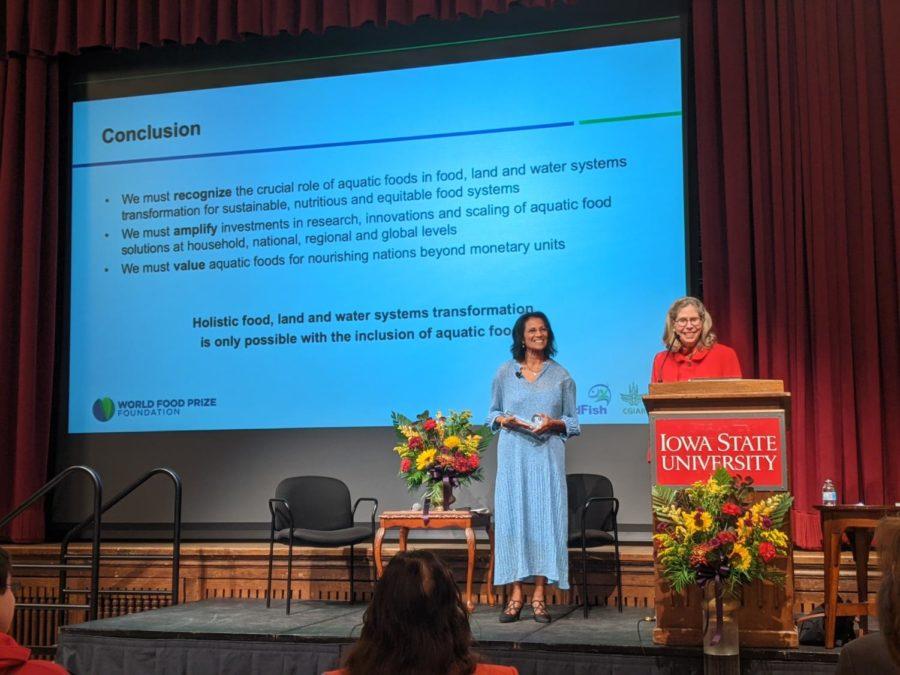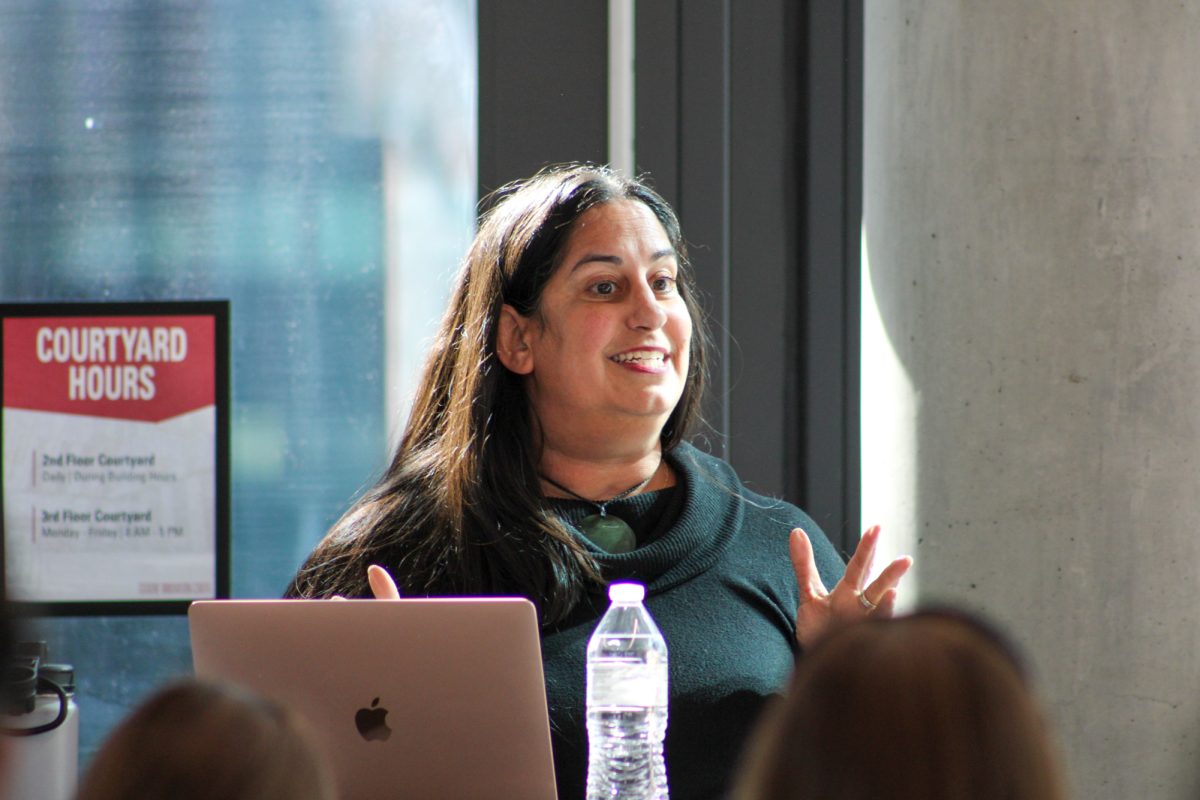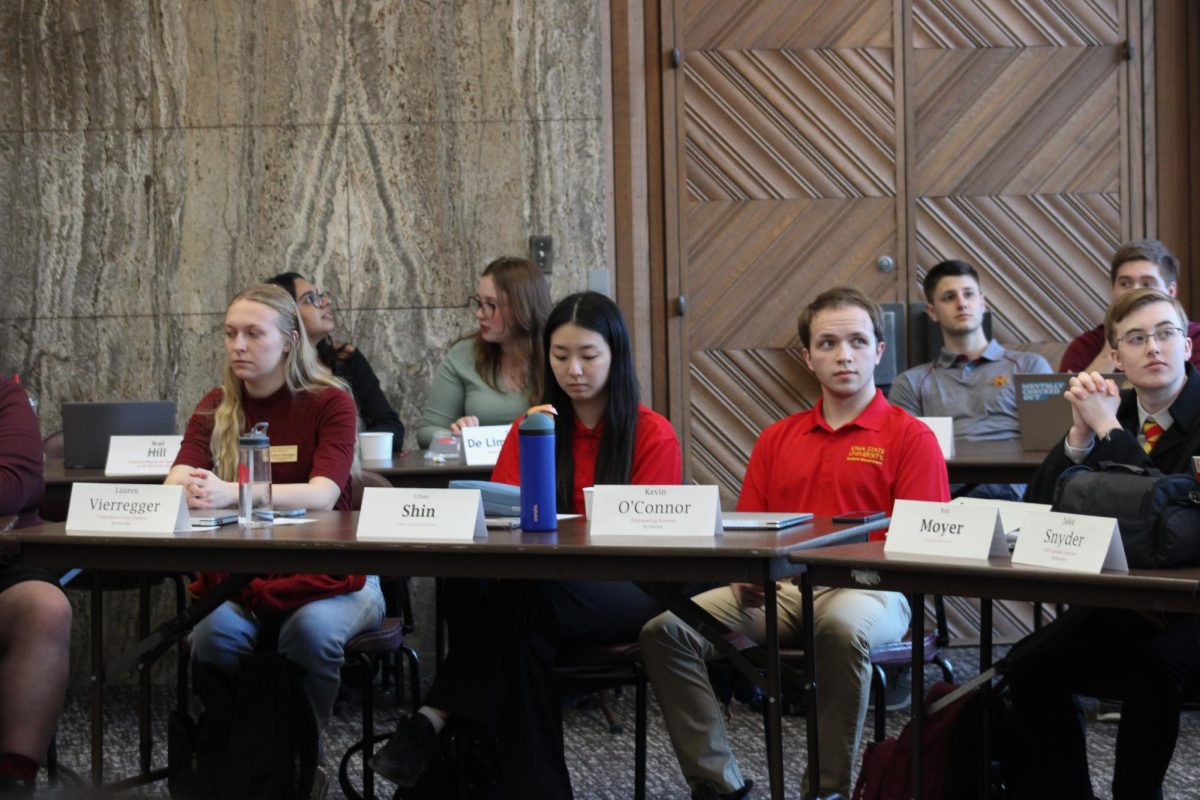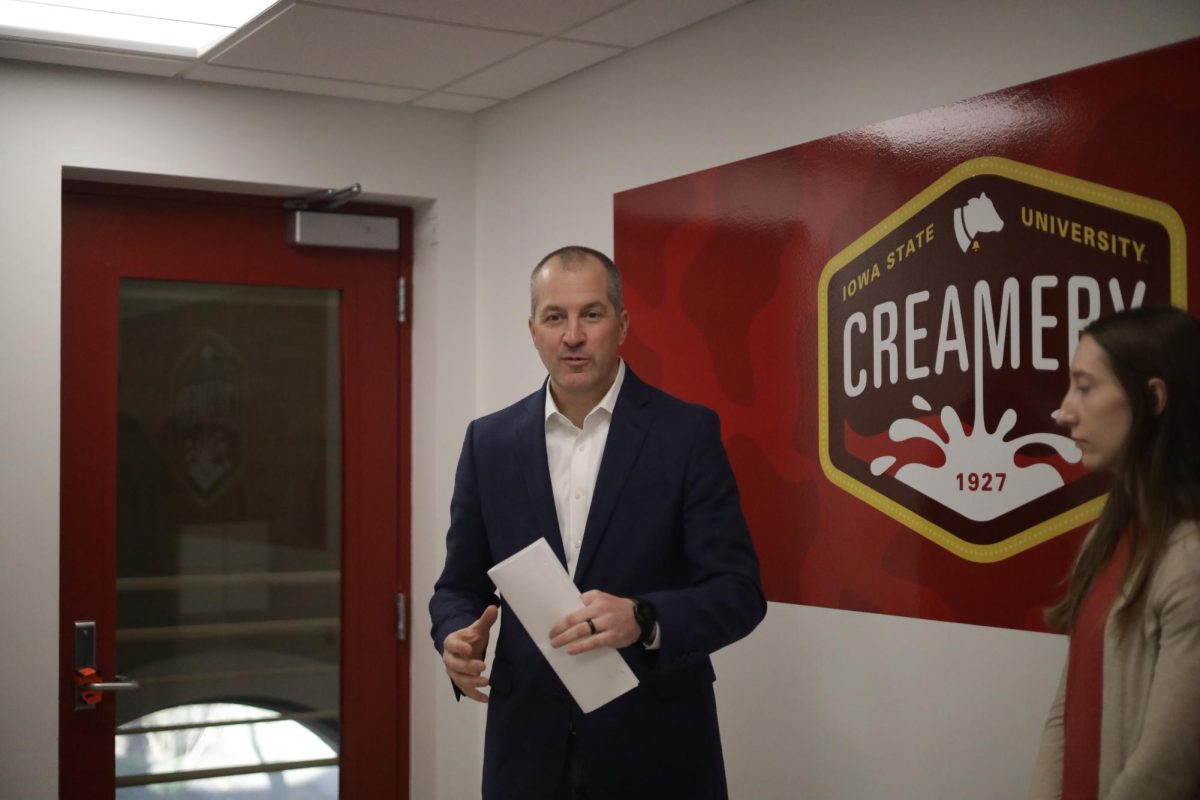Iowa State hosts 20th annual Norman Borlaug Lecture
October 18, 2021
Iowa State hosted the 20th annual Norman Borlaug lecture on Tuesday night featuring the 2021 World Food Prize laureate, Shakuntala Haraksingh Thilsted.
Thilsted was awarded the 2021 World Food Prize for her outstanding research, insights and innovations in aquaculture and developing nutrition-sensitive food systems. Thilsted emphasized the importance of aquatic foods throughout the lecture explaining the role they could play in food systems across the world.
The Norman Borlaug lecture also briefly featured the 2020 World Food Prize laureate, Dr. Rattan Lal, because he was unable to present in person during last year’s lecture.
Thilsted has worked with villages and groups across the eastern world in places like Bangladesh and Cambodia, working towards solutions to help stop hunger.
Thilsted explained how aquatic food systems are often neglected by groups trying to find solutions to world hunger and nourishment problems. She pointed out that aquatic foods are not just limited to fish, but could include any number of plants and species living underwater. Thilsted highlighted seaweeds as a potentially impactful product that could stem from aquaculture.
“Seaweed is an up-and-coming area that everyone is talking about, in terms of nutritional value and in terms of sustainability,” said Thilsted.
The 2021 UN food summit took place in September to work towards more sustainable food systems. In the lead-up to the summit, the UN identified aquatic food sources as one of the seven priorities in the transformation of food systems. Aquatic food systems are now being recognized for their diversity, nutritional value and potential to help mitigate climate change.
Thilsted highlighted the dependence on aquatic food systems globally. According to her presentation, 3.3 billion people regularly consume aquatic foods and over 800 million people depend on aquatic systems for their incomes and livelihoods.
“There are many multiple micronutrients, vitamins and minerals that are found in aquatic foods, and the essential fatty acids that are so important for cognition in children,” said Thilsted.
Thilsted argued that in order to increase the prevalence and reliability of aquatic food sources, there must be some change in the narrative concerning world hunger. Thilsted encouraged a change from a perspective focused on ‘feeding the growing population,’ to something focused on ‘nourishing people and planet.’
“If we were to shift the narrative to nourishing, then we would also include the quality of foods, in terms of nutritional quality, the micronutrients and the fatty acids that I’ve talked about, but also about food safety of diverse foods,” said Thilsted.
Thilsted’s suggested narrative for dealing with world hunger put individuals at the center of the issue and would enable people to come up with better solutions, personalized for groups struggling with hunger. During her presentation, she gave several examples of culturally acceptable, context-specific aquatic food solutions.
Thilsted ended her presentation with three messages for the audience to take forward: to recognize the value of aquatic food sources, to increase research and work being done in the world of aquatic food sources and to value aquatic foods for nourishing nations beyond monetary units.
“Holistic food, land and water systems transformation is only possible with the inclusion of aquatic foods,” said Thilsted.







